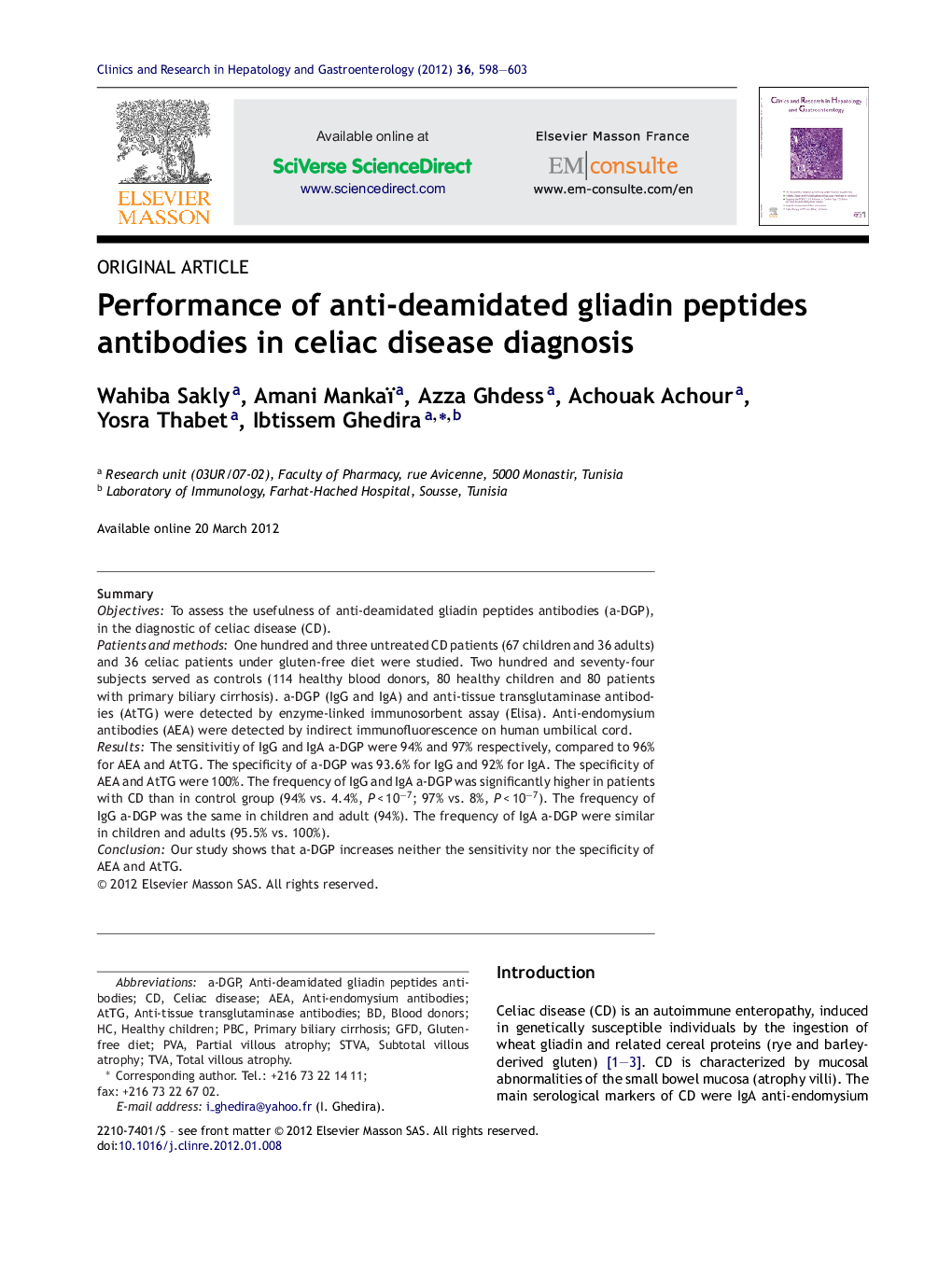| Article ID | Journal | Published Year | Pages | File Type |
|---|---|---|---|---|
| 3286821 | Clinics and Research in Hepatology and Gastroenterology | 2012 | 6 Pages |
SummaryObjectivesTo assess the usefulness of anti-deamidated gliadin peptides antibodies (a-DGP), in the diagnostic of celiac disease (CD).Patients and methodsOne hundred and three untreated CD patients (67 children and 36 adults) and 36 celiac patients under gluten-free diet were studied. Two hundred and seventy-four subjects served as controls (114 healthy blood donors, 80 healthy children and 80 patients with primary biliary cirrhosis). a-DGP (IgG and IgA) and anti-tissue transglutaminase antibodies (AtTG) were detected by enzyme-linked immunosorbent assay (Elisa). Anti-endomysium antibodies (AEA) were detected by indirect immunofluorescence on human umbilical cord.ResultsThe sensitivitiy of IgG and IgA a-DGP were 94% and 97% respectively, compared to 96% for AEA and AtTG. The specificity of a-DGP was 93.6% for IgG and 92% for IgA. The specificity of AEA and AtTG were 100%. The frequency of IgG and IgA a-DGP was significantly higher in patients with CD than in control group (94% vs. 4.4%, P < 10−7; 97% vs. 8%, P < 10−7). The frequency of IgG a-DGP was the same in children and adult (94%). The frequency of IgA a-DGP were similar in children and adults (95.5% vs. 100%).ConclusionOur study shows that a-DGP increases neither the sensitivity nor the specificity of AEA and AtTG.
